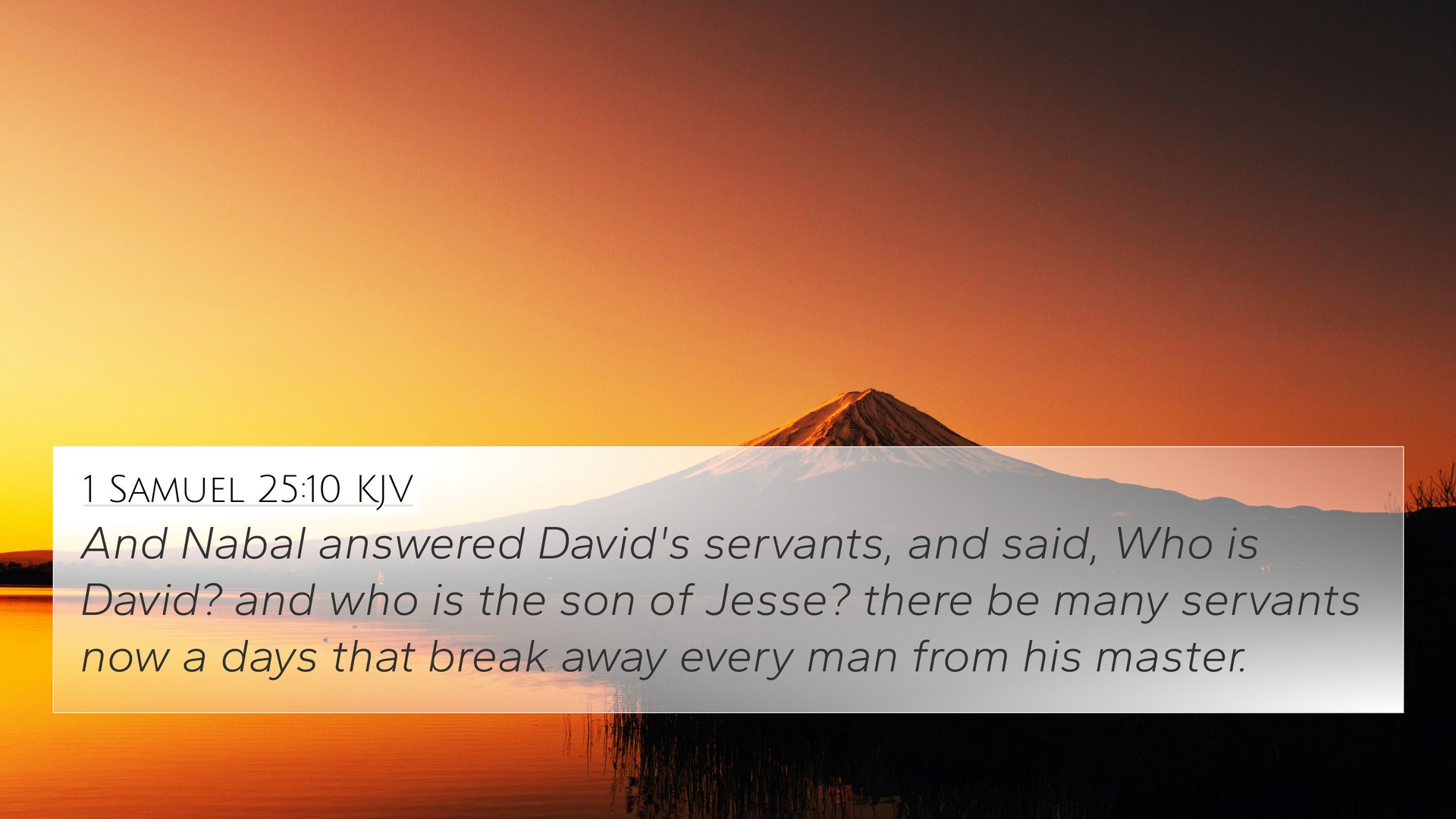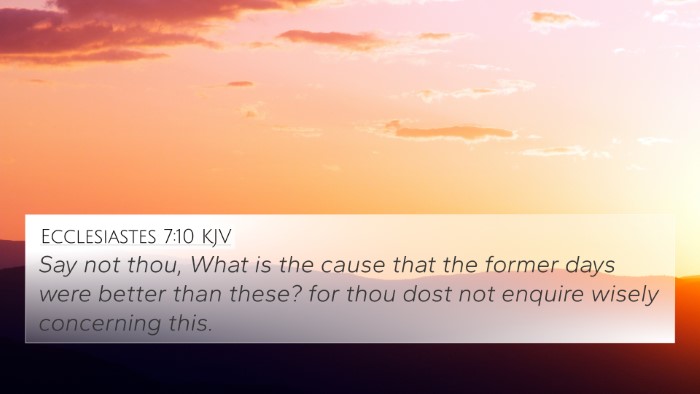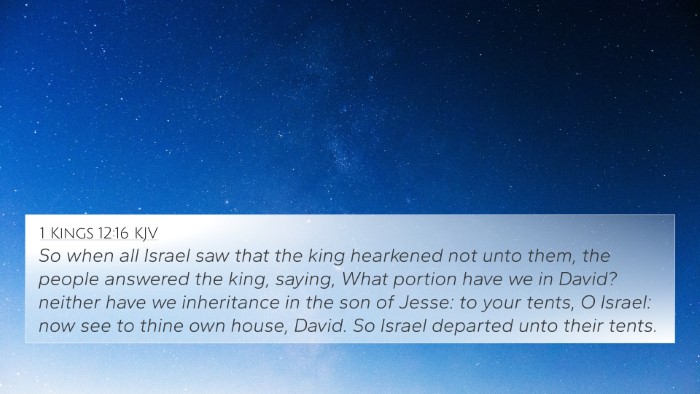Understanding 1 Samuel 25:10 - A Comprehensive Analysis
Verse Context: 1 Samuel 25:10 states: “But Nabal answered David’s servants, and said, Who is David? and who is the son of Jesse? there be many servants now a days that break away every man from his master.”
Interpretation and Meaning
The response of Nabal to David’s request reveals much about his character and the broader themes found in the Scriptures. The following insights from notable public domain commentaries provide an in-depth examination of this verse:
-
Matthew Henry's Commentary:
Matthew Henry notes that Nabal's dismissive attitude towards David exemplifies pride and ignorance, suggesting that Nabal did not recognize David's significance as the anointed king of Israel. This underscores the contrast between humble acknowledgment of God's anointed and the arrogance of those who dismiss divine election.
-
Albert Barnes' Notes:
Barnes emphasizes that Nabal's question reflects a common disregard for authority and spiritual truth. His refusal to acknowledge David’s status as a servant of God illustrates a broader theme of the rebellion against God’s chosen leaders. It highlights the peril of underestimating God’s work in the lives of individuals like David.
-
Adam Clarke's Commentary:
Adam Clarke points out the societal implications of Nabal’s response, providing insight into how power dynamics and personal interests can obscure recognition of God’s representatives. Clarke also emphasizes Nabal's ultimate fate, which serves as a dire warning against contempt for divine authority.
Thematic Connections in Scripture
This verse can be understood through the lens of several interconnected biblical themes and related scriptures:
- Divine Authority: Romans 13:1 - "Let every soul be subject unto the higher powers. For there is no power but of God: the powers that be are ordained of God."
- Pride and Folly: Proverbs 16:18 - "Pride goes before destruction, and a haughty spirit before a fall."
- Recognition of God’s Timing: 1 Chronicles 12:23 - "And these are the numbers of the bands that were ready armed to the war, and came to David to Hebron, to turn the kingdom of Saul to him, according to the word of the Lord."
- Serving the Anointed: Psalm 105:15 - "Saying, Touch not mine anointed, and do my prophets no harm."
- Consequences of Rejection: Matthew 10:14 - "And whosoever shall not receive you, nor hear your words, when ye depart out of that house or city, shake off the dust of your feet."
- The folly of Wealthy Ignorance: Luke 12:20 - "But God said unto him, Thou fool, this night thy soul shall be required of thee: then whose shall those things be, which thou hast provided?"
- God's Use of the Obscure: 1 Corinthians 1:27 - "But God hath chosen the foolish things of the world to confound the wise; and God hath chosen the weak things of the world to confound the things which are mighty."
Cross-referencing Bible Texts
Understanding 1 Samuel 25:10 is enhanced through cross-referencing, leading us to realize the theological significance of recognizing God's authority and the consequences of neglecting it. Key tools for Bible cross-referencing come into play here:
- Utilize a Bible concordance to track themes of authority and rebellion.
- Explore a Bible cross-reference guide for insights into David's life and Nabal's foolishness.
- Consider Bible chain references to follow the narrative of God's chosen leaders throughout scripture.
- Engage with comprehensive Bible cross-reference materials to deepen understanding of prophetic parallels.
Conclusion
In summary, 1 Samuel 25:10 is rich in theological implications and practical applications. The verse presents a snapshot of the consequences of ignoring divine authority, encapsulated in Nabal's tragic blunder. By cross-referencing this text with other scripture passages, one can glean a deeper understanding of God's message throughout the Bible.
Related Study Resources
For those keen on diving deeper into cross-referencing techniques, consider the following:
- How to find cross-references in the Bible
- Identifying connections between Old and New Testament
- Cross-referencing themes in the Bible














